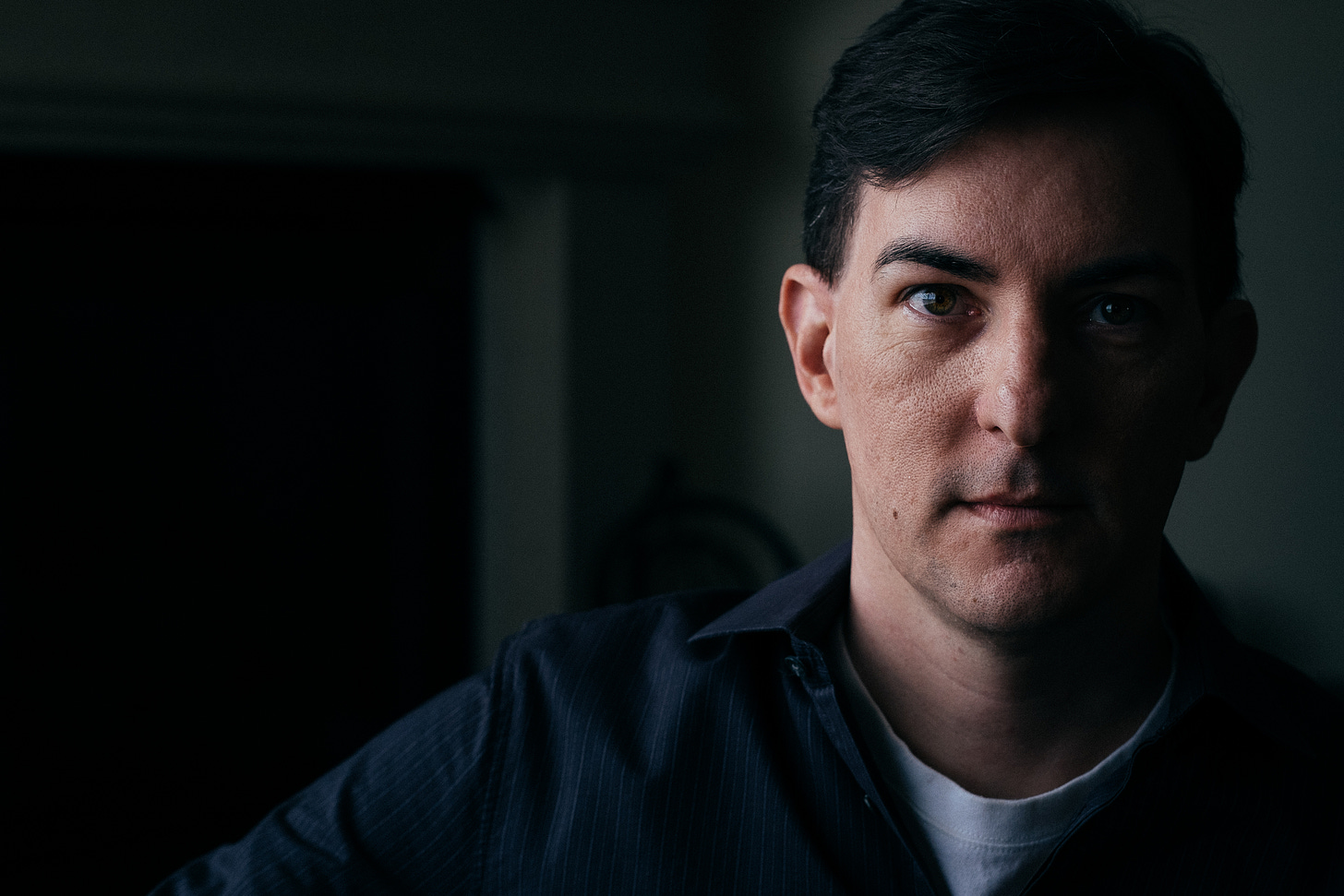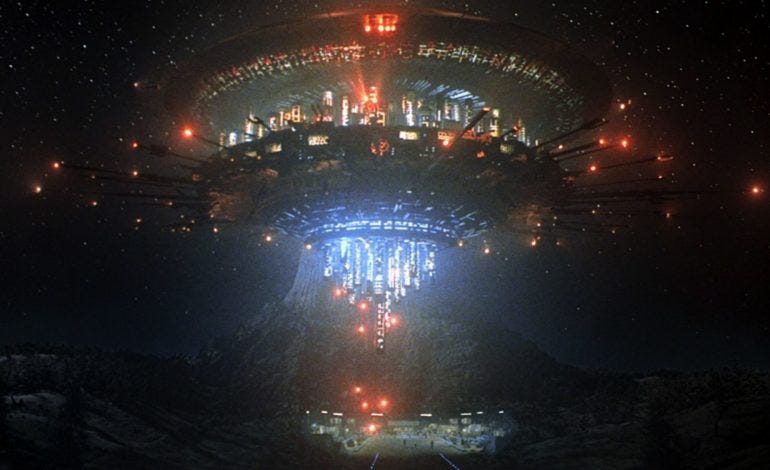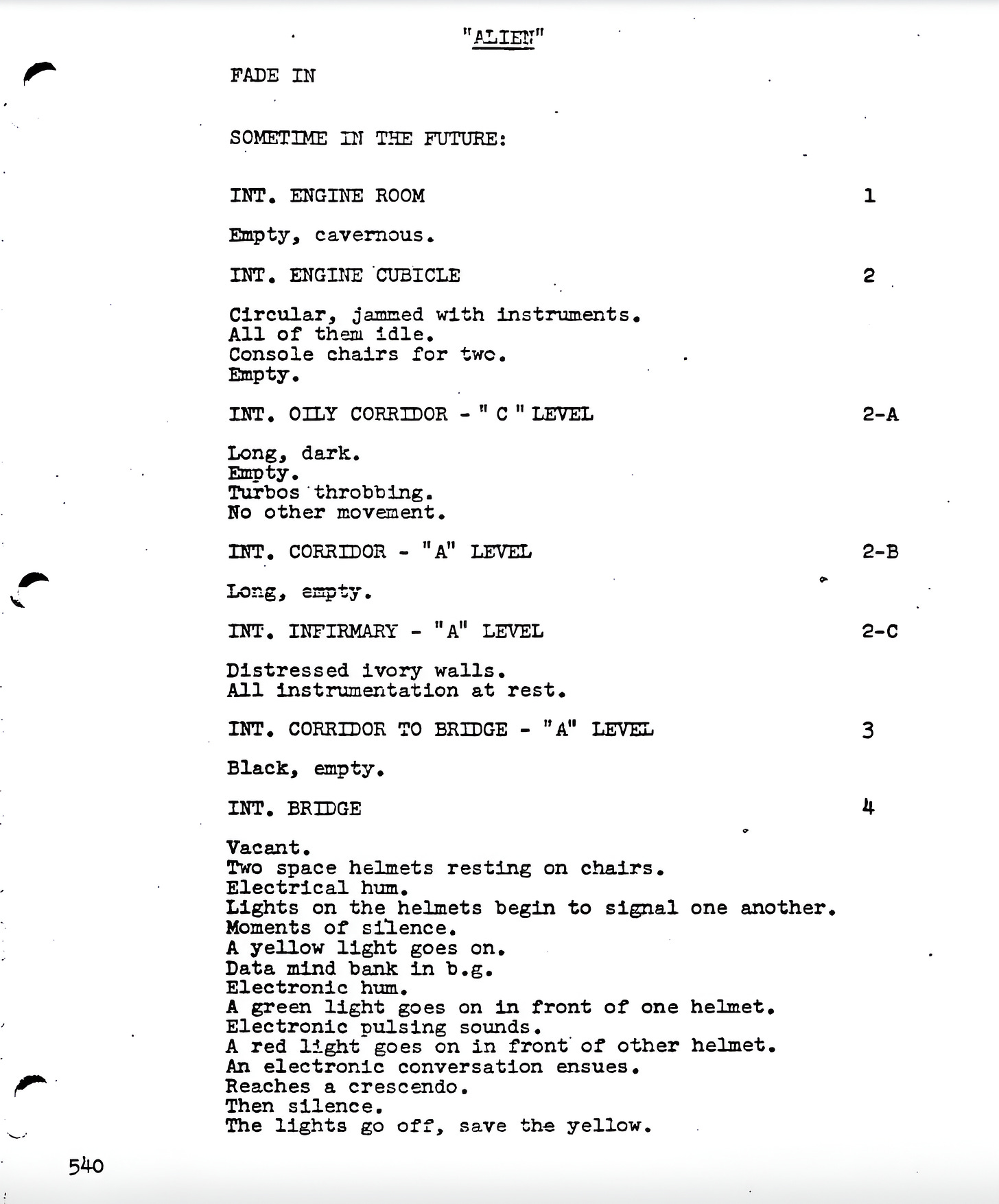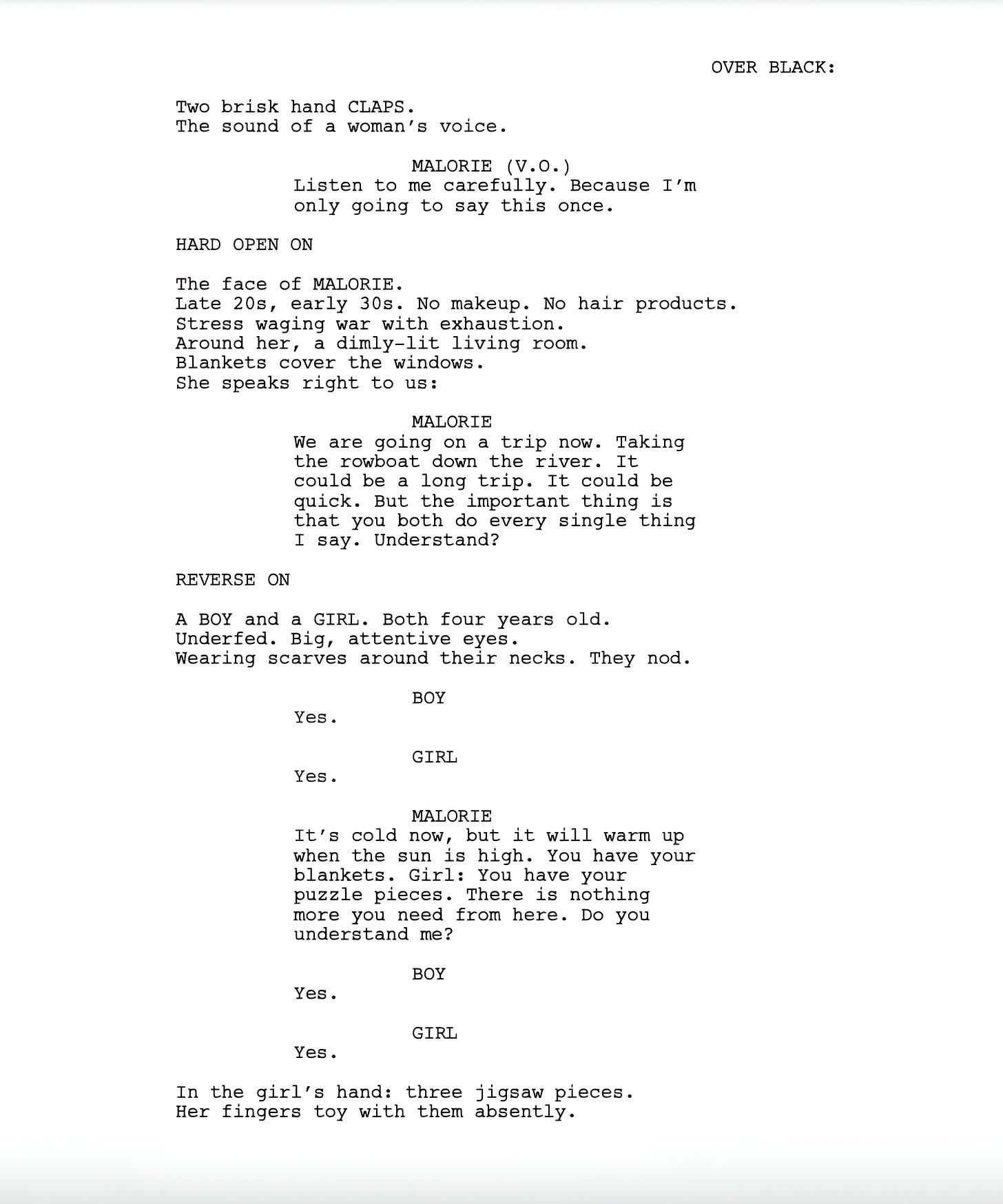Q&A: Screenwriter Eric Heisserer on the Burden of Knowing What You Want to Become
The scribe behind 'Arrival', 'Bird Box', and 'Shadow and Bone' talks the art of adaptation, homicidal houses, and the unique kind of hell that is Netflix's Consumer Insights department
I’m not one of those cinephiles who can instantly tell you their favorite films from this year or that. In fact, if you ask me to tell you what I watched last month, my brain freezes up and I, in turn, stammer like an idiot at you. It’s a shit handicap to have when talking about what you’ve recently watched is a key part of taking general meetings as a screenwriter. But there are a handful of films from any given decade that immediately stand out in my mind, both in time and for the impact they had on me - and Arrival (2016) is one of those.
In my humble opinion, it’s one of the finest American films of the teens and the kind I will regularly cite when people wonder what kind of films I’d like to see more of from Hollywood. I’d even go so far as to suggest it approaches the numinous when it comes to cinema. It’s impossible not to feel as if something otherworldly is happening both on the screen and to the audience.
While Denis Villeneuve directed the film — his most accessible Hollywood effort to date, methinks — it’s screenwriter Eric Heisserer who is most responsible for the successful translation of Ted Chiang’s time-jumping short story “The Story of Your Life” to the big screen. The story and script are temporal puzzle boxes that explore human beings’ innate fear of communication in intimate relationships, but also geopolitically and intergalactically. For his adaptation, Eric received an Academy Award nomination in 2017.
Eric’s next film was the streaming smash hit Bird Box (2018), which starred Sandra Bullock. In 2020, he co-wrote Bloodshot, starring Vin Diesel. And the following year, he created “Shadow and Bone” for Netflix. It ran for two seasons before it was surprisingly canceled late last year. Not long afterward, Netflix revealed its streaming numbers to the world, including how monstrously successful “Shadow and Bone” really was, further infuriating devoted fans. These fans have since garnered more signatures on a petition than any other show in recent history. In other words, streamers really are a silly place for filmmakers to do business (but that’s a story for some other day).
What you’re about to read is an epic conversation Eric and I had about the origins of his passion for screenwriting, the decades-long evolution of his craft, and his pursuit of greater creative autonomy as a screenwriter. There is so much to learn here about realizing your dreams whether you’re just beginning to flirt with the idea of writing for film and TV or if you’re a well-established professional.
I’d encourage aspiring and emerging screenwriters to pay close attention to the real talk Eric shares about his first decade as a professional screenwriter. All writers, wherever they are on their creative journey, should also consider his unique approach to crafting his adaptations.
COLE HADDON: Sometime around the 2017 Academy Awards, the year you were nominated for Best Adapted Screenplay for Arrival, I recall an interview with you in which you described the emotional reaction had to Ted Chiang’s “The Story of Your Life”. You didn’t say as much, but it struck me that that reaction, much more so than plot, provided the real building blocks for your adaptation of Chiang’s short story. We’ll get into Arrival and your screenwriting in a bit, but I was wondering if you can recall the first such visceral reaction you had to a piece of writing – or any artwork, for that matter – that inspired you to think, “Yeah, I want to tell a story like that, that moves me like that,” that in some way became the building blocks of the storyteller you are today?
ERIC HEISSERER: Close Encounters of the Third Kind. While my friends were all losing their minds over Star Wars, I kept revisiting this movie. It captured such a rare mix of grounded reality with astonishing sci-fi. And it was full of characters who felt real, reacting like real people would in that situation. That was the first time when I felt my brain switch from experiencing movies purely as a consumer of culture, and to considering what was under the hood.
CH: How do you feel about it today? It’s such a Biblical story, in my mind. Of a spiritual calling, of obsession and madness. I still love it so much, but I find myself understanding Steven Spielberg’s own hesitance at the central character choosing the Voice of God over his kids. I’ll add, it’s also very much the opposite of Arrival in my mind. Whereas Close Encounters begins small and personal and blows up into something we might call epic, Arrival begins with that sense of impossible scale and gets more and more intimate as the story progresses.
EH: It is Biblical! But it’s also a story about obsession. And it showcases Spielberg in a specific chapter of his life and as such I feel it needs to be preserved, versus criticized or revised by Spielberg now. I believe Roy — [Richard Dreyfuss’s character] — would have carried around the question of what was beyond the light of the ship for the rest of his life. If it were a sports movie, this would be the play the star player chose not to take, which would haunt them for the rest of their days and make others around them just as miserable.
Plus, the way Spielberg infused the music of his mother and the math of his father with how the aliens communicate gives me a sense that a connection with family is there, in some form.
“I became intensely curious about how something I’d already seen in its final form on the big screen read first on the page.”
CH: How did you become a screenwriter, then? Or rather, how did you start down that road?
EH: It wasn’t until much later — when I was in a tiny theater in Houston, at the only screen where Run Lola Run was showing in the entire city — that I began my personal campaign to start writing screenplays. Back then, you didn’t have such instant access to thousands of screenplays online, so I bought physical copies of bound scripts sold at Barnes & Noble.
CH: Oh, I remember that time well. The Shooting Script series changed my life.
EH: Those scripts were revelatory. What I learned browsing the printed screenplays on the shelves is that everyone has their own style within the basic formatting rules. I became intensely curious about how something I’d already seen in its final form on the big screen read first on the page. What changed? What was cut? What was mangled by a director or editor? But most importantly - how did the writer communicate the story in a way that made it instructive to cast and crew how it would be portrayed on film, but without overtly directing them?
CH: What screenwriters stand out in your memory of this period of discovery?
EH: I’d been impressed by the confidence in William Goldman’s tone, and the fourth-wall breaking of Shane Black, but what bowled me over was the utter haiku-like economy of Walter Hill. His draft of Alien is among the most sparse writing that still gets the job done.
CH: I’m actually friends with Walter, or maybe I should say friendly. We worked together for a winter on a TV project that was meant to star Idris Elba and, like most everything in this business, fell apart. But for that summer, I got to hang out in his beautiful house, hear stories about “the old days”, and mostly try not to assault him with ten thousand questions because I couldn’t agree with you more. The economy of his writing, how he turned the page into a kind of poem, was the first time I thought screenwriting could be more than just instruction and dialogue. It could be a literary act.
EH: Yeah! And that there is such a sublime way to feed your director the motion of the camera, the feeling to evoke, and the important element in a shot to track - without ever being overt or prescriptive about it.
CH: I’ve only read a few of your screenplays, but would it be fair to say that Hill’s mark shows up in your work today? In particular, the economy of your words, an aversion to run-on sentences and descriptions, one might even say perfunctory blasts of cinematic action and/or beauty that instruct — that almost command the imagination’s eye — without overtly directing. You often even throw out spaces between single lines of description, to really nail that rapid-fire staccato delivery. It’s kind of glorious to read, to be honest, especially given how so much of Hollywood development blunts good scripts’ edges.
EH: I’ll always be chasing Hill’s economic style, but I land somewhere shy of it. Where it means the most to me is in scenes of intense, quick-paced action, where I want the reader racing through the page with their eye as the action unfolds. And the other time I find it powerful is, like in the opening pages of Hill’s Alien, when the world is quiet and still. And that white space on the page can be full of suffocating dread.
CH: I’m so glad you referenced the importance of white space on the page.
EH: It’s how I approached Bird Box, where I wanted to evoke a radically different feel for the scenes with Malorie, Girl, and Boy versus everyone crammed into a messy house. I wanted the white space on the page to give the reader a sense of the emptiness of the world. It’s how I felt when I read Josh Malerman’s galleys.
CH: There, you did it again. That reference to adapting not only a story — whether Chiang’s short story “The Story of Your Life” or Malerman’s novel — but also how you felt reading it. This might seem obvious to you, but I rarely hear it articulated this way by screenwriters. In your case, you took it a step further and, looking at your computer screen, actually thought, “I want to recreate that ‘sense of emptiness of the world’ on the page.”
EH: Yeah. Actually, yeah, that’s my approach to adaptation. Can I capture how I felt when I read it, and make sure that can carry over onto the page, and hopefully to the screen beyond that? If I can make the audience feel what I felt when I read it, I consider that an effective adaptation. So, I guess you could say that’s part of my writing style.
“If I can make the audience feel what I felt when I read it, I consider that an effective adaptation.”
CH: What other screenwriters influenced your writing style?







